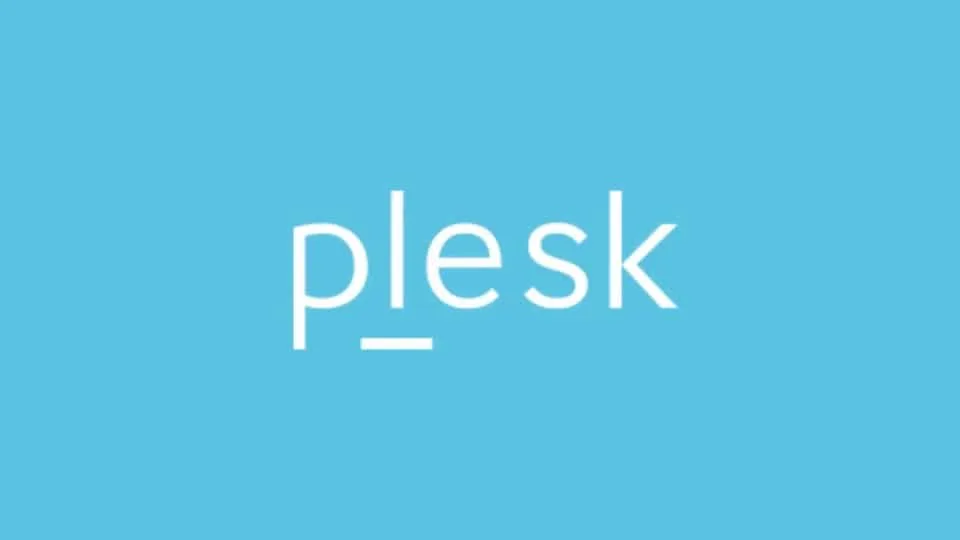Plesk Hosting is one of the most popular choices for web hosting control panels because it is highly flexible while at the same time offering all of the necessary features to allow you to manage your website.
Plesk is an open source script based control panel that allows you to manage and maintain a number of websites. There are some major differences between Plesk Hosting and cPanel, which mean that there are also different options for you to consider when you are looking to host your website with this control panel.
First of all, you will find that Plesk Hosting is much simpler to use than cPanel which is an extremely complex webhosting control panel system.
cPanel can become extremely confusing and problematic if you do not have a good understanding of how it works and what it offers.
On the other hand, Plesk Hosting is extremely simple to use and does not require you to be particularly savvy in order to gain full benefit from it.
Plesk does not complicate your life but rather it simplifies it which means that it is great for those who are just starting out and would like a simple control panel that they can learn and grow from.
In addition to simplicity, Plesk Hosting also has a wide variety of add-ons and software packages that you can choose to install on your Plesk web hosting server. This is great if you are looking to customize your Plesk Hosting experience even more.
With so many available choices, you can easily find something that fits perfectly into your own personal needs and requirements. The best part is that the vast majority of these add-on software packages will work seamlessly with Plesk itself which means that there will be no need for you to make any modifications to your Plesk Control Panel.
However, while Plesk offers a great solution for hosting websites Plesk also provides its users with a number of benefits and advantages. For example, Plesk provides complete control over the security aspects of the server. Therefore, Plesk can be used to ensure the security of all servers behind it.
Moreover, Plesk control panel allows the administrator to access various sites through remote connections. Therefore, if you want to manage several sites across different domains then Plesk is perfect for that. It also offers support for multiple email address and MySQL databases.
Apart, from all these benefits Plesk also provides another big advantage of its design. Plesk has a flexible architecture which means that there are no limits to what you can do. This is possible because
Plesk gives you a very flexible control panel that lets you configure everything in the box and makes very few tweaks unless you want to change them yourself. This is an ideal solution for people who do not have much knowledge about website management or do not have much time to spare when it comes to tweaking the inner workings of their website. Plesk is also very user friendly and does not require too much technical knowledge, which is an added advantage.
One more advantage of Plesk hosting is that it can give your site an appealing look by giving you an interface that looks similar to a Windows operating system. This is the main reason why Plesk control panel is so popular among small to medium size businesses.
The flexibility and convenience offered by Plesk make it a preferred option by most website owners. Therefore, if you want to secure your website and give it an attractive look then you should definitely consider Plesk Hosting.
What is Plesk?
Plesk is a powerful web hosting control panel that enables users to easily manage their websites, domains, emails, and more from a single interface. Originally developed by Parallels and later acquired by Oakley Capital, Plesk has evolved into a versatile platform trusted by millions of users worldwide. Whether you’re a novice user or an experienced web developer, Plesk offers a user-friendly interface and a wide range of features to meet your hosting needs.
- Key Features of Plesk
One of the standout features of Plesk is its intuitive user interface, which makes it easy for users to navigate and manage their hosting environment.
From deploying new websites to configuring domain settings and managing email accounts, Plesk offers a streamlined experience that saves time and reduces complexity.
Additionally, Plesk supports a variety of web hosting technologies, including PHP, Node.js, and Ruby on Rails, allowing users to host a wide range of applications and websites.
Whether you’re running a WordPress blog, an e-commerce store, or a custom web application, Plesk provides the tools and resources you need to succeed.
Another notable feature of Plesk is its built-in security capabilities. With features such as firewall management, malware scanning, and automatic updates,
Plesk also helps ensure the security and integrity of your websites and data. This is particularly important in today’s landscape, where cyber threats are constantly evolving and becoming increasingly sophisticated.
Benefits of Hosting Websites on Plesk
There are several benefits to hosting websites on Plesk, including:
- Simplicity: Plesk simplifies the process of hosting and managing websites, allowing users to focus on their core business activities without getting bogged down by technical details.
- Versatility: Plesk supports a wide range of web hosting technologies, making it suitable for hosting various types of websites and applications.
- Security: With its built-in security features, Plesk helps protect websites and data from cyber threats, providing peace of mind to users.
- Scalability: Whether you’re hosting a single website or managing multiple domains, Plesk offers scalable solutions that can grow with your business.
- Reliability: Plesk is backed by a team of experts who are dedicated to ensuring the reliability and uptime of their hosting platform, minimizing the risk of downtime and disruptions.
Plesk vs cPanel: Comparing Two Titans of Web Hosting Control Panels
When it comes to managing web hosting environments, two names stand out as industry leaders: Plesk and cPanel. Both platforms offer powerful tools and features to simplify website management, but they have distinct differences that cater to different user preferences and needs.
Let’s delve into a comparative analysis of Plesk vs cPanel to understand their strengths, weaknesses, and which one might be the better fit for your hosting requirements.
- User Interface and Experience:
One of the most noticeable differences between Plesk and cPanel is their user interfaces. Plesk is renowned for its modern and intuitive interface, featuring a clean layout and easy navigation. Its user-friendly design makes it particularly appealing to beginners and those who prefer a more visually appealing experience.
On the other hand, cPanel has a more traditional interface with a multitude of icons and menus. While some users appreciate its familiarity and extensive feature set, others may find it overwhelming, especially for first-time users.
- Supported Operating Systems and Technologies:
Both Plesk and cPanel support a wide range of operating systems, including Linux and Windows. However, Plesk has an edge when it comes to versatility, as it also supports Docker, which enables users to deploy and manage containerized applications seamlessly.
In terms of supported technologies, both platforms offer support for popular programming languages and applications such as PHP, MySQL, and WordPress. However, cPanel has historically been more closely associated with the LAMP (Linux, Apache, MySQL, PHP) stack, while Plesk has broader support for additional technologies such as Node.js, Ruby on Rails, and ASP.NET.
- Security Features:
Security is a top priority for website owners, and both Plesk and cPanel offer robust security features to protect websites and data. Plesk includes features such as firewall management, automatic updates, and malware scanning, helping users safeguard their hosting environment against cyber threats.
Similarly, cPanel offers security features like IP address blocking, SSL/TLS management, and two-factor authentication to enhance the security of websites and server environments. Both platforms take security seriously, but the specific features and configuration options may vary.
Pricing and Licensing:
Pricing and licensing models differ between Plesk and cPanel, with each platform offering various plans tailored to different user needs. Plesk typically offers a subscription-based pricing model with tiered plans based on the number of domains and additional features included.
cPanel, on the other hand, traditionally operated on a per-server licensing model, where users paid a flat fee for each server running cPanel. However, in recent years, cPanel has transitioned to a new pricing structure based on the number of cPanel accounts hosted on a server, which may be more cost-effective for some users.







